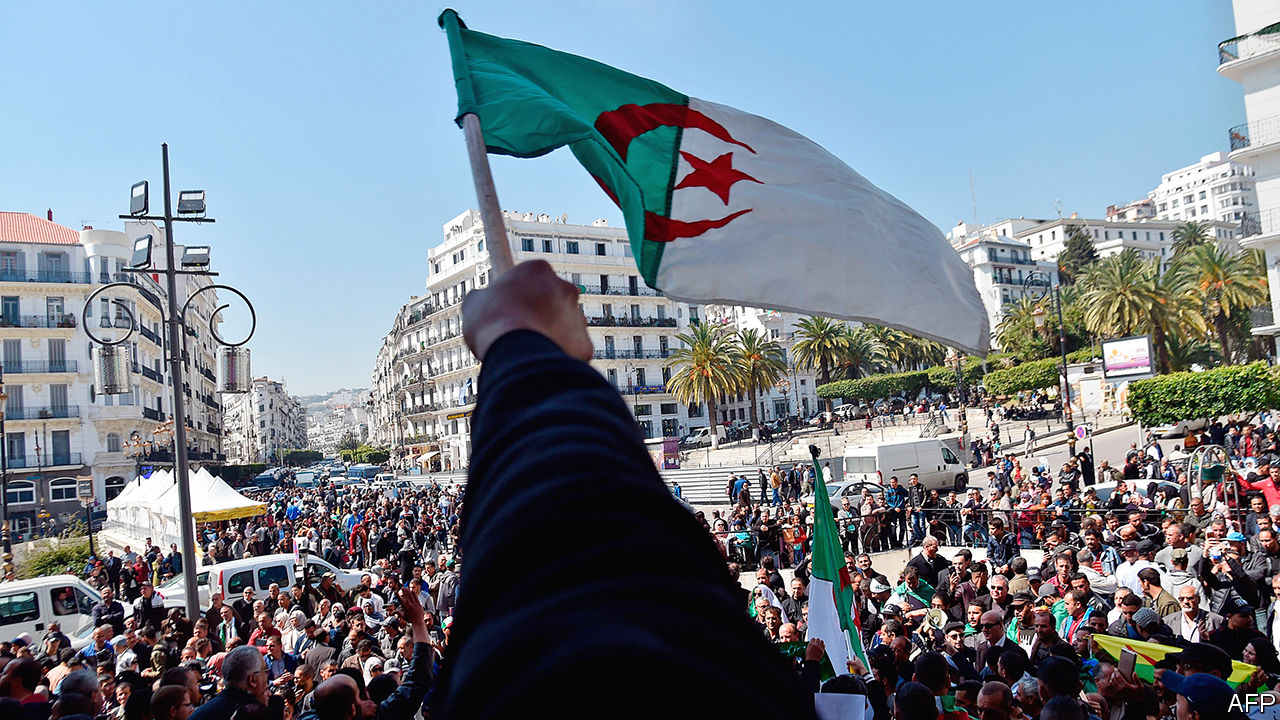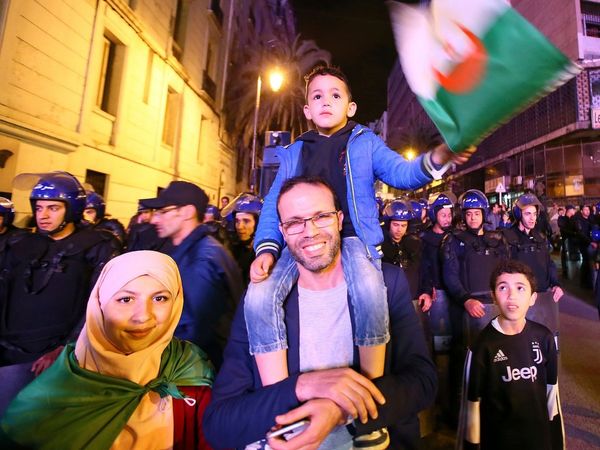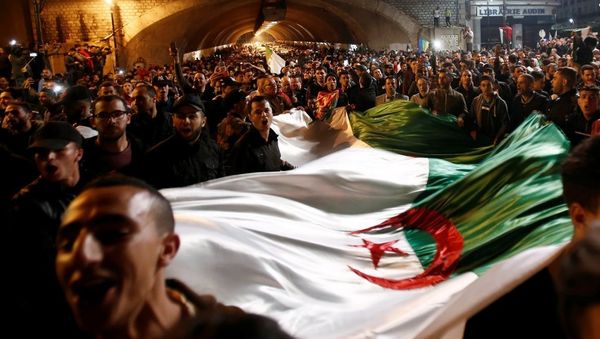
AFTER WEEKS of angry protests, the streets of Algeria erupted again on April 2nd—this time in celebration. President Abdelaziz Bouteflika, who had clung to power for 20 years, had at last stepped down. Joyful Algerians, many of whom have known only one leader, draped themselves in the national flag and spoke of a new era for the country. “Game over”, read one of the banners hoisted by the crowd.
In fact the battle for Algeria is just beginning (see article). Mr Bouteflika, who suffered a debilitating stroke in 2013, was merely a figurehead for a shadowy group of businessmen, politicians and generals who really run the country. His fall, therefore, is merely a symbolic victory. The old invalid is gone, but if Algeria is to move to “the better future” that Mr Bouteflika—or, more likely, his coterie—wrote about in his resignation letter, then much bigger changes are needed.
The country is entering a period fraught with risk. Mr Bouteflika’s resignation was preceded by other empty concessions—a new prime minister, vague promises of a political transition—aimed at calming the masses. But these have emboldened the protesters, whose ambitions are growing. They will not be satisfied with the constitutional way forward, which would see Abdelkader Bensalah, the Speaker of the Senate and a Bouteflika loyalist, assume the presidency until an election is held. Many, quite rightly, want a new start.
As the protesters move closer to the real centres of power, the ruling cabal looks increasingly nervous. The army chief, General Ahmed Gaid Salah, has tried—and failed—to control each step of the process. Officials have warned of bloodshed, evoking Algeria’s civil war in their efforts to avoid real reform. That conflict began after the last free and fair parliamentary election, in 1991. The first round of voting was won by Islamists, so the generals cancelled the rest. Some 200,000 people were killed in the fighting that followed, which lasted for most of the 1990s. The civil war in neighbouring Libya also provides a dark warning of what can happen when a dictator is overthrown.
There is certainly a danger of violence, but the protesters have remained determinedly peaceful. Islamists are not nearly as powerful as they once were and, anyway, have kept mostly quiet. Algeria’s tribal divisions are less pronounced than Libya’s. Tellingly, only those in power speak of the possibility of a new round of violence, perhaps out of habit. For decades they have justified their ruthlessness by pointing to the bloody past. Yet it is the ruling elite that has fallen to in-fighting. Several of Mr Bouteflika’s allies have been detained, some while allegedly trying to get their ill-gotten gains out of the country. Some see a purge orchestrated by General Salah.
That is no way forward. The ruling cabal should follow Mr Bouteflika’s lead in giving up power—and so too should General Salah, who seems loth to relinquish the army’s role as the arbiter of politics. He has chided those who sought to extend the president’s rule in order to preserve “their narrow personal interests”. Yet he himself backed Mr Bouteflika until it was clear that the protests would not stop. The demonstrators want a clean break from the out-of-touch old guard, including the general. Algeria needs soldiers who are comfortable with civilian rule, and who value freedom as much as stability.
A caretaker government is needed to oversee the process of creating a more open system, starting with a national conference. But for that to happen, the opposition must get its act together. An umbrella organisation of liberals, Islamists and trade unionists, to name just a few of the groups taking part in the protests, was created last month on a vague platform of reforms, but it already seems to be falling apart. If an election were to be held in 90 days, as the constitution requires, it is not clear who would represent the opposition or if it could even mount an effective campaign. That has led to growing fears that Algeria could go the way of Egypt, where protesters toppled an old dictator in 2011, but the fracturing of the opposition eventually allowed the army to retake control. Tunisians, by contrast, worked together to shore up their nascent democracy.
In getting rid of Mr Bouteflika without bloodshed, the Algerian protesters have achieved much, but their victory is far from complete. They need to learn from their neighbours, and unite until a new regime is embedded. Peaceful transition to democracy is a rare flower in the Arab world’s political desert; but it could just flourish in Algeria’s parched soil.










